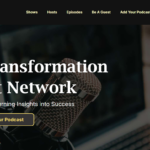During the last couple of years, the concept of ‘disruption’ has been a central theme of digitalization. The idea is that new digital themes and companies will challenges and re-define the rules of an industry or sector. It challenges traditional with ease and threatening those companies unable to adjust to new pre-requisites. Digital technology, business models and customer behavior can be seen as the engine for the new disruptive economy. The business disruptive usually take time before it gathers critical mass until it forcefully can disrupt an industry or sector – but when it finally has gathered critical mass it moves quickly and forcefully. Seldom we experience quick disruption that changes the society or business landscape in a matter of weeks. How would we react then? How can be prepare for this scenario?
The world is currently overwhelmed by the Corona pandemic disrupting society, business and political landscape. In a few weeks, we have moved from a normal society to a society shut down to prevent the spread of the ill-willing flu virus. Currently, schools and travel are restricted in many countries and countries such as Italy is completely isolated. What is remarkable is the speed in which a complete society is disrupted and turned upside down. What is hard to grasp is that this kind of disruptions will increase in frequency and magnitude with increased digitalization, globalization and urbanization. Even though we seem to be prepared for all eventualities, the society is in fact highly vulnerable and an easy target for new disruptors.
The disruption threat is not only concentrated to business trends and new competition/technology, but can included other dimensions such as political, social, economic and environmental. In fact, a majority of the latest business disruptions were linked to these other dimensions and they are increasing in magnitude and frequency. The biggest threat to business, designed to avoid and risk and uncertainty, are disruptors outside the reach of current business leaders. It is difficult for business leaders to influence the impact and direction of new wave of refugees, climate catastrophes, volcano out-breaks, pandemics, and global terrorism. Business need to have a readiness for disruptors in real-time. A scenario where new disruptors can change the business rules within a week or two.
The new business situation requires new capabilities and leadership. A leadership that continuously analyze and evaluates trends from all perspectives and have continuity plans to quickly adjust to the new situation. To cope with situations when for example – travel is not allowed, customer demand is reduced by 50% and a large portion of the work force is home sick. What we see today is that most companies and organization are unprepared for these kind of scenarios as they have traditionally been very unlikely. These scenarios are not unlikely any longer – but a reality here and now.
But how to be prepared for the unthinkable? First of all, it is a matter of attitude and awareness. The disruptors will occur and will increase in magnitude and frequency. The difference between survival and being phased out of the market is the ability to act quickly and make fact-based decisions. To quickly change business, management and operation from a normal state to a crisis state where new principles, governance and leadership applies. It is a rapid-business transformation (few weeks) that need to occur at once without chocking or paralyzing the employees and managers. The same rules and phases of business transformation applies but need to be executed in a matter of weeks. Secondly, it is necessary to train for these kinds of disruptive events with expensive stress tests playing up these scenarios. To identify bottlenecks and obstacles for quick reaction to new pre-requisites and situation. What happens in the organization if employees are not allowed to travel or that customer demand is reduced by 50% over a period of time? These scenarios will happen in real-life – it is just a matter of time.
What we need to understand is that survival in the disruptive economy is not a matter of luck but the ability to quickly manage opportunities and threats in an effect and efficient way. Being prepared with right leadership, governance and capabilities is crucial for survival and need to be in place at once – when disruption attack our business and society with full force. How well are you prepared for the new disruptive economy?
Disruption will continue to pivotal role in the future of business and society. The increased digitalization, globalization and urbanization has created a vulnerable world and are an engine for the disruptive economy. What we know is that the disruptive economy will be increased in speed, magnitude and frequency for many years to come. But there are help and support for the new disruptive economy in terms of online collaboration tools, digital e-commerce platforms and governance concepts such a ‘beyond budgeting’ to quickly cope with increase unpredictability. The question is you are ready to challenge tradition to survive in the future?
Tag/s:Digital Disruption





